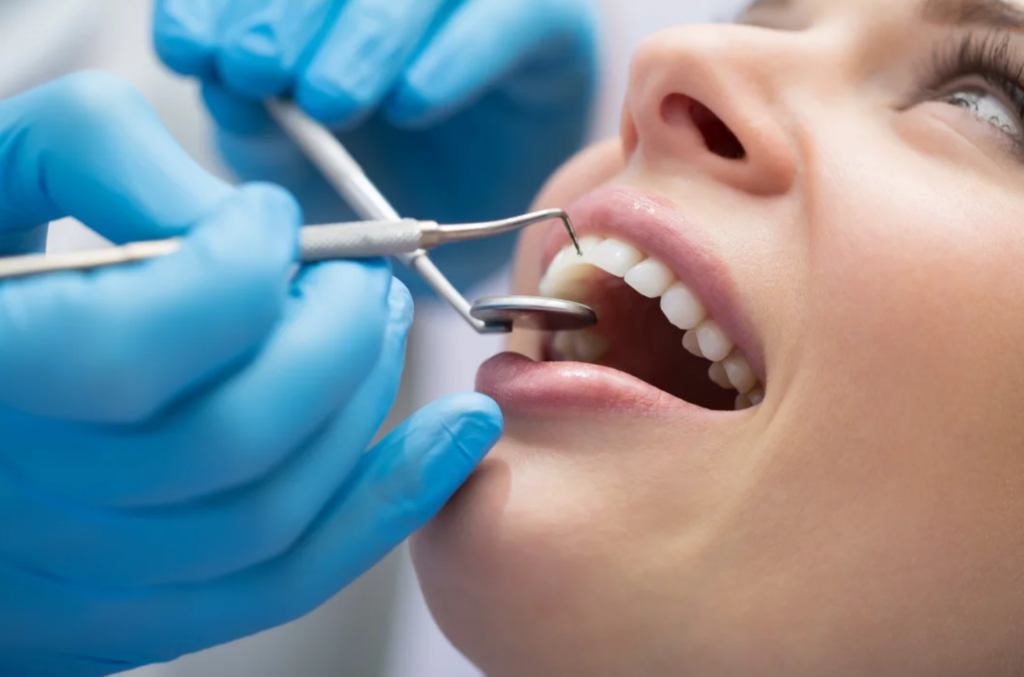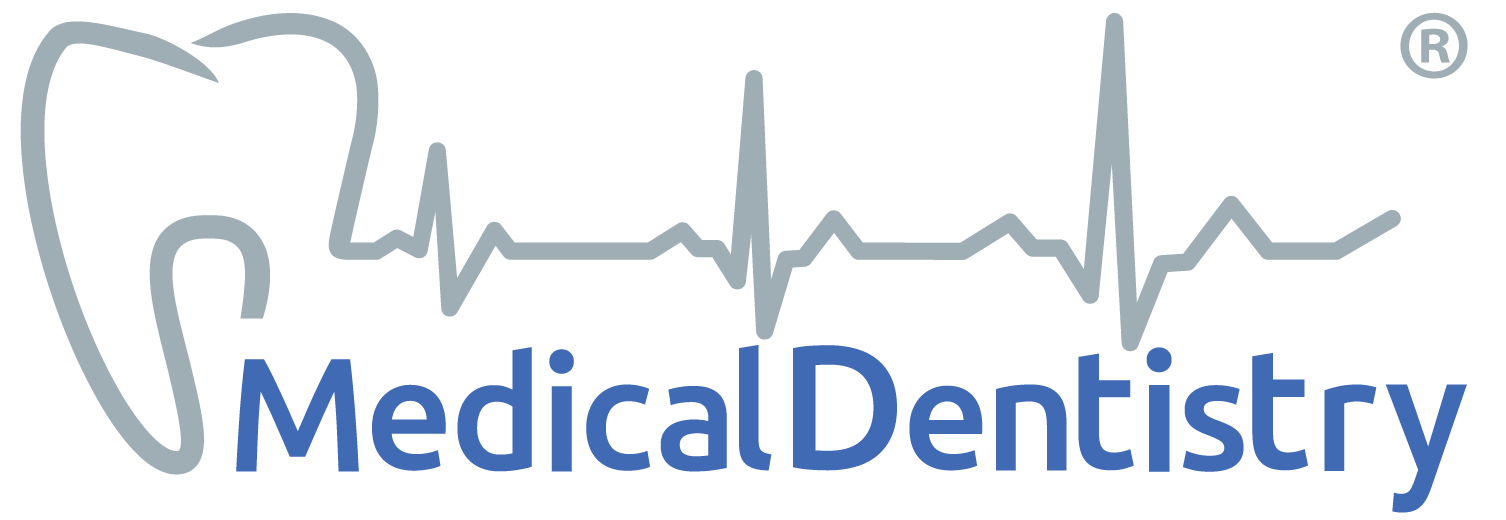Dental diseases
“Remember that on the pain scale, toothache ranks among the worst things you can experience.”
Good oral health contributes not just to your appearance and self-image but also to your overall health. Neglected and missing teeth lead to a loss of self-respect, while healthy periodontal tissues and tooth replacements can improve your self-confidence considerably. Inflammations in the oral cavity and changes in tooth enamel can contribute to a variety of severe health problems, including heart diseases, diabetes, respiratory diseases and premature birth. Oral cavity health is a very helpful factor when it comes to making the diagnosis and choosing the treatment for a range of diseases. Bacteria in dental plaque create caries and periodontal disease, so it is extremely important to maintain good oral hygiene in order to prevent dental diseases.

Amalgam
 Amalgams or dark fillings have been in use for many years. According to some data, they are used by over 75% of dentists. Amalgam fillings contain toxic mercury, which can have a number of negative effects on the health. So there are plenty of good reasons to replace these harmful and unaesthetic fillings. At the Medical Dentistry clinic, we use methods for professional, safe removal of amalgam fillings with mercury content, thus eliminating their negative impact on your body.
Amalgams or dark fillings have been in use for many years. According to some data, they are used by over 75% of dentists. Amalgam fillings contain toxic mercury, which can have a number of negative effects on the health. So there are plenty of good reasons to replace these harmful and unaesthetic fillings. At the Medical Dentistry clinic, we use methods for professional, safe removal of amalgam fillings with mercury content, thus eliminating their negative impact on your body.
Medical data shows:
- that amalgam is by far the largest source of mercury in the body;
- that people with amalgam fillings have a considerable higher level of mercury in their bodies;
- that some individuals have toxic concentrations of mercury in the brain and kidneys;
- that there is a connection with mercury content in the blood, urine and tissues in the body.
- that mercury can remain in the brain from several years to several decades, which means that mercury levels in the tissues gradually increase until they reach toxic concentrations;
- that mercury is 10 times more toxic than lead when it comes to nerve cells. On top of that, mercury has a synergistic effect with other metals.
Composite (white) fillings
“We make sure that you have a beautiful and healthy smile”
Sooner or later, we are all faced with tooth decay, when the decaying part of the tooth needs to be removed and the missing dental tissue filled in. Composite (white) fillings are an alternative to traditional amalgam fillings,  which are unaesthetic and harmful to the health. Composite fillings are strong, aesthetic and durable, but most importantly they pose no risk to your health. They immediately look more attractive, as they are made of plastic dental resin, a strong and durable material. Despite the fillings, your smile will look completely natural, since the fillings are matched to the colour of your teeth. When a more extensive reconstruction of the dental crown is necessary, we go with an inlay or onlay. These are usually made of porcelain, but they can also be made of gold or composite.
which are unaesthetic and harmful to the health. Composite fillings are strong, aesthetic and durable, but most importantly they pose no risk to your health. They immediately look more attractive, as they are made of plastic dental resin, a strong and durable material. Despite the fillings, your smile will look completely natural, since the fillings are matched to the colour of your teeth. When a more extensive reconstruction of the dental crown is necessary, we go with an inlay or onlay. These are usually made of porcelain, but they can also be made of gold or composite.
In the event of missing dental tissue caused by tooth decay, wear or injury, Medical Dentistry offers two types of services:
1. White composite fillings, which are aesthetic, stable and pose no risk to health. Made from artificial materials, they are colour adaptable, strong, durable and do not spoil the appearance of natural white teeth.
2. An inlay or an onlay is used when more than half of the biting surface has decayed. Similar to fillings, inlays and onlays are used when a dental crown has to be reconstructed more extensively, but not in its entirety. An inlay fills the space between the cusps of a tooth, while an onlay covers one or more cusps. They are usually made of porcelain but can also be made of gold or composite.
Teeth Grinding
It has been proven that one out of three patients clenches his or her teeth at night. A misaligned bite, teeth clenching and grinding means that there is a serious lack of coordination between the muscles, jaw joint and teeth. These problems usually surface in the form of signs discovered by the dentist rather than symptoms a patient could identify on his or her own. If asked whether they clench their teeth at night, most people will reply, “Of course not.” The reason why most people have two different bites is in the fact that misaligned points on the teeth prevent the maximum contact of all teeth with the correct positioning of the jaw joint. If you feel that your bite is changing, we recommend a detailed bite analysis that will allay your fears or provide information for treatment.
There are three causes of tooth loss:
- Tooth decay – caries;
- Periodontal disease;
- Injuries.
Ignoring injuries sustained in sports, fights and accidents, it is your bite that slowly but surely destroys your teeth.

Perfect oral health can be established only once we have identified and remedied every problem affecting the balance. Patients are usually not even aware of the processes that are causing them discomfort. It is the task of a dentist or physician not just to explain and eliminate the cause of the symptoms (the discomfort you feel) but mainly to discover the signs of disease you haven’t even noticed, thus preventing the occurrence of further symptoms.
There are more symptoms that are hard to identify in the functional field of oral health than in any other field. Because we believe in comprehensive dental care, at the Medical Dentistry clinic we help patients to achieve healthy gums and a healthy oral mucosa, firm teeth, a beautiful smile and a functionally stable bite. A stable bite means that there is correct and even pressure on the teeth and they are working harmoniously with the jaw muscles and joints. When this is not the case, the condition is known as malocclusion.
Bite analysis is used to determine how much, where and, most importantly, why you are not reaching this medical ideal. Excessive tooth wear, broken and damaged dental surfaces and sensitivity of the mastication muscles and the jaw joint are indicators of a misaligned bite. When planning the dental treatment, it is essential to identify this problem and eliminate it before delivering final solutions to the patient.
Granuloma
Do you suffer from occasional pain and unpleasant sensations in the mouth?
 There are a number of possible causes of granuloma. It can be caused by extensive tooth decay, an old and worn amalgam or composite filling, a prosthetic cap, a cracked dental crown or root, a root canal treatment done improperly, etc. A granuloma is a chronic inflammatory process in the organism and its immune cells. It is caused by bacteria in the root canal where the dental nerve is located. The bacteria will dissolve the jawbone and can cause an infection of the nerve in addition to damaging the tooth. Unless the granuloma is treated in time, the tooth may be lost. Much like periodontal disease, a granuloma has a negative effect on the development and progress of many other inflammatory diseases, autoimmune inflammatory processes, cardiovascular diseases, diabetes and similar conditions. A granuloma is treated by extracting the nerve from the tooth, treating the canals and filling them with special material.
There are a number of possible causes of granuloma. It can be caused by extensive tooth decay, an old and worn amalgam or composite filling, a prosthetic cap, a cracked dental crown or root, a root canal treatment done improperly, etc. A granuloma is a chronic inflammatory process in the organism and its immune cells. It is caused by bacteria in the root canal where the dental nerve is located. The bacteria will dissolve the jawbone and can cause an infection of the nerve in addition to damaging the tooth. Unless the granuloma is treated in time, the tooth may be lost. Much like periodontal disease, a granuloma has a negative effect on the development and progress of many other inflammatory diseases, autoimmune inflammatory processes, cardiovascular diseases, diabetes and similar conditions. A granuloma is treated by extracting the nerve from the tooth, treating the canals and filling them with special material.
Root canal treatment
Root canal treatment or endodontics is an extremely complicated procedure that involves removing the infected or damaged tissue from the tooth interior. It is crucial that the interior of the tooth is thoroughly cleaned to the very ends of the root canals. With endodontic treatment, it is possible to preserve a tooth that would otherwise have to be extracted. Although the tissue has been removed from it, the tooth remains alive and feeds from the surrounding periodontal tissues.
The pulp inside the tooth can die because of tooth decay, an injury or for other reasons. In all cases, the dental pulp or nerve is exposed to bacteria in the saliva and becomes infected. Unless the condition is treated in time, bacteria will travel down the root canal into the jawbone and form a nodule filled with pus, also known as granuloma. Accompanied by a variety of symptoms, the process is often barely noticeable. “I stayed out in the wind for too long” or “I just got a toothache,” people often tell their dentist. In any case, an infection can take several years, but eventually it will result in a swelling and pain that tends to wake you up in the middle of the night.
When a granuloma occurs, there are two solutions:
1. Root canal treatment or endodontics. An antibiotic alone can’t solve the problem, because the blood flow to the pulp has been obstructed, which prevents the antibiotic from reaching the bacteria.
2. Tooth extraction.

Before the root canal treatment, we have to establish that the patient and the tooth make for suitable candidates for treatment. It is important to assess the condition of the tooth and determine whether enough healthy dental tissue is left for the reconstruction and full use of the tooth after the treatment. If this is not the case, it is better to go with the second option in order to avoid complications later on.


